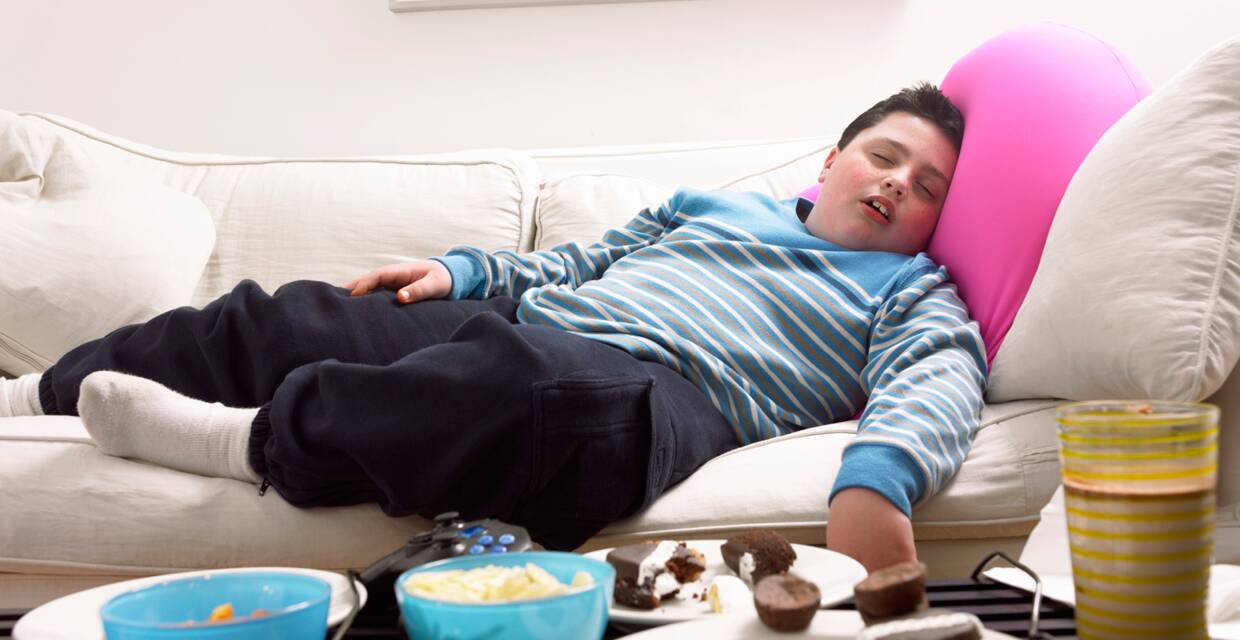Key Points
- Schools across the nation are implementing new strategies to combat the rising rates of childhood obesity, led by initiatives from First Lady Michelle Obama.
- One such strategy is the introduction of FitDesks, stationary bicycles with desks, to classrooms. This not only keeps students physically active but also aids in mental focus.
- Changes to vending machine regulations now require schools to stock healthier, low-calorie snacks and smaller drink sizes, although this does not apply to food brought from home.
- Schools are also encouraging more physical activity during recess through organized games and activities, and teachers are incorporating lessons about healthy food choices into their daily curriculum.
- The focus of these initiatives is not on weight loss, but on overall health and fitness. Teachers play a crucial role in promoting healthy decision making among students.
In today's schools, 17 percent of children are considered obese. Few children exercise outside of gym class, and even fewer children are eating healthy meals at home. Lead by First Lady Michelle Obama, the nation's schools are working tirelessly to put an end to childhood obesity. Here's what you may find in a school near you:
#1 FitDesk
FitDesk is an amazing contraption that looks like it came straight out of the neighborhood fitness center. Developed in Nashville, the FitDesk is essentially nothing more than a stationary bicycle outfitted with a desk. The founders of FitDesk donated 30 bikes to a classroom in Glencliff High School in Nashville. Eventually, the business plans to put 10,000 bikes into schools across the nation.
The premise is simple: Your child studies in class while pedaling at his desk. It's not designed to be a high-intensity workout, but a way to keep moving. Not only are the desks aimed at keeping kids bodies fit, but their minds as well. These desks are popular among adults in the office as well. Studies have shown that the workstations help to improve heart health and sharpen mental focus.
#2 Vending Machines
Gone are the days of vending machines packed with chocolate bars and energy drinks. Schools today are relegated to stocking their machines with snacks that are limited to 200 calories per serving. The vending machines must also sell smaller-sized drinks that are more in line with true serving sizes. What you need to know is that this rule only applies to vending machines. Your kids can still bring cupcakes for birthdays and enjoy bake sales when raising funds.
#3 Recess
Drive by any elementary school on your way to lunch and you may see a few children swinging, a couple sliding and a large number standing around chatting. What you'll rarely see are dozens of children running. Schools can combat this by encouraging more exercise at recess. How? With recess leagues. Kickball games, volleyball tournaments and a few games of PIG get kids moving in a way that is both productive and exciting. Studies have shown that just seven minutes of intense exercise helps to combat childhood obesity.
Related: Playing It Safe: 4 Steps to Playground Safety
#4 Smart Choices
Teachers show their students how to make smart choices every day. These choices rarely include smart choices about food, outside of a few, quick health lessons. Teachers can take it upon themselves to make everyday a lesson about food choices. Sugary snacks can be replaced by chopped vegetables, the class bake sale can turn into the class farm market, and learning how to grow a class garden is an invaluable lesson.
#5 Fitness Instead of Weight Loss
Experts at the CDC recommend not harping on your students about proper weight. Instead, your goals should revolve around teaching children how to make choices that impact their overall health in a positive way. Teach your students about health and fitness in a way that doesn't focus on the negative but, instead, shows them how to make smart choices.
Related: Common Sicknesses in Schools [Infographic]
Teachers wear many hats. Included in your drawer of hats are the roles of dietitian, nutritionist and fitness coach. You spend more time with your students than their own parents do, it only makes sense that you would be one of the biggest influences on healthy decision making.
Frequently asked questions
What is the current rate of childhood obesity in schools?
As of now, 17 percent of children in schools are considered obese.What is the FitDesk and how does it contribute to combating childhood obesity?
The FitDesk is a stationary bicycle with a desk attached. It allows students to keep moving while studying in class. It isn't a high-intensity workout, but it helps keep children's bodies and minds fit.What changes have been made to vending machines in schools?
Vending machines in schools are now required to stock snacks that are limited to 200 calories per serving and smaller-sized drinks. However, this rule only applies to vending machines, not to food brought from home or sold at bake sales.How are schools encouraging more exercise during recess?
Schools are encouraging more exercise at recess by organizing recess leagues, including kickball games, volleyball tournaments, and other active games. These activities get kids moving in a fun and productive way.What are some ways teachers can educate students about making smart food choices?
Teachers can incorporate lessons about smart food choices into everyday learning. This could include replacing sugary snacks with vegetables, turning bake sales into farm markets, and teaching students how to grow a class garden.What is the recommended approach for teaching children about health and fitness?
The CDC recommends focusing on teaching children how to make choices that positively impact their overall health and fitness, rather than focusing on weight loss.What roles do teachers play in influencing students' health decisions?
Teachers often act as dietitians, nutritionists, and fitness coaches for their students. They spend more time with students than their own parents do, making them a significant influence on students' healthy decision making.What are the benefits of using FitDesk in schools and offices?
FitDesk not only helps in keeping the body fit by encouraging movement, but it also helps sharpen mental focus and improve heart health.











![In the Nurse's Office: Common Sicknesses in Schools [Infographic]](https://d1kve3ll6vvkpr.cloudfront.net/dir/media/W1siZiIsIjIwMTMvMDgvMDkvMjJfMjVfMzZfMzU1X2NvbW1vbl9pbGxuZXNzZXNfaW5mb2dyYXBocGljLnBuZyJdLFsicCIsInRodW1iIiwiODAweDQxNyMiXSxbInAiLCJlbmNvZGUiLCJqcGciLCItcXVhbGl0eSA5NSJdXQ/file.jpg?basename=In+the+Nurse%27s+Office%3A+Common+Sicknesses+in+Schools+%5BInfographic%5D&sha=3df4cedf1e5892e9)